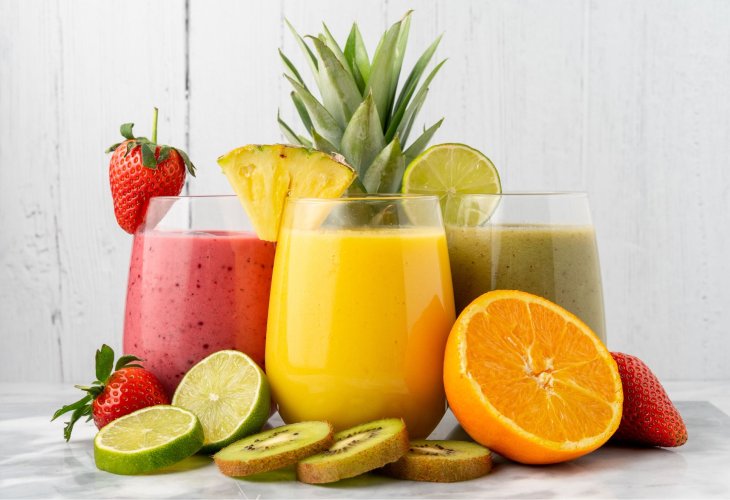Why You're Still Hungry After That Juice
Ever wonder why a glass of fruit or vegetable juice leaves you hungry? Discover the surprising truths about these popular drinks and their role in your diet.

According to recent data collected by the Centers for Disease Control and Prevention (CDC), most children and adolescents in America meet the recommended amounts set by health professionals for drinking fruit and vegetable juices. However, when it comes to adults, it's a different story.
Seventy percent of Americans do not regularly drink fruit and vegetable juices, which is one of the simplest ways to consume the recommended amount of fruits and vegetables in their natural form.
Here are a few more intriguing facts about fruit and vegetable juices that might surprise you:
- If a juice label says 100% fruit, it contains no added sugar, just the natural sugars found in fruits.
- Juicing fruits and vegetables and consuming them immediately gives you 100% of the vitamins and minerals found in whole fruits and vegetables.
- Most fruits and vegetables contain Vitamin C, calcium, and Vitamin D.
- Calorie counts vary between different juices, but most fruit juices contain no more than 80 calories per cup.
- The World Health Organization recommends consuming several cups of fruit and vegetable juices daily in their natural form, meaning 100% juice.
- One hundred percent fruit juice contains natural phytonutrients—compounds found in fruits, vegetables, and plants that researchers believe have disease-preventing properties.
- Juice should not replace meals: While some believe in juice cleanses as a healthy alternative to meals, most experts agree that for healthy individuals, it isn't suitable.
- Ever wonder why spinach is a 'star' in so many juices lately? Kale and spinach contain protein just like chicken, fish, eggs, and cheese.
- Does juice detoxify? So do your liver and kidneys. Even if fruit and vegetable juices help flush toxins, your body does this cleaning naturally, without the need for juice. "If there are harmful elements swirling around your body, your liver and kidneys are already doing a great job expelling them," explains American nutritionist Natalie Rizzo. "A diet that supports the liver and kidneys will inherently aid them in their tasks."
- Skip the peels if you have issues (especially hemorrhoids and constipation), but fruit and vegetable peels hold many vitamins and other important substances, often in higher levels than the fruit itself (excluding those noted in the next point).
- Even if you're healthy, avoid the peels of these fruits: Melon peels can lead to various diseases, lemon and lime peels—some parts are okay, but too much can upset your stomach, orange and grapefruit peels are very bitter, and mango peels can cause negative reactions and allergies for some, while pumpkin peel is hard on your stomach.
- Forgetting to drink enough water daily? You're not alone. "Juice at least increases your fluid intake, unlike coffee, soda, or alcohol which have dehydrating effects," explains nutritionist Dr. Ivy Sharp.
- According to Dr. Sharp, juicing makes you miss out on one key component: "When you grind solid fruit or vegetables into liquid juice, you remove insoluble fiber. This is a valuable nutrient that aids digestion and helps you feel satisfied. Juice is a drink, not a meal; hence, after drinking juice, you'll still feel hungry for something solid."

